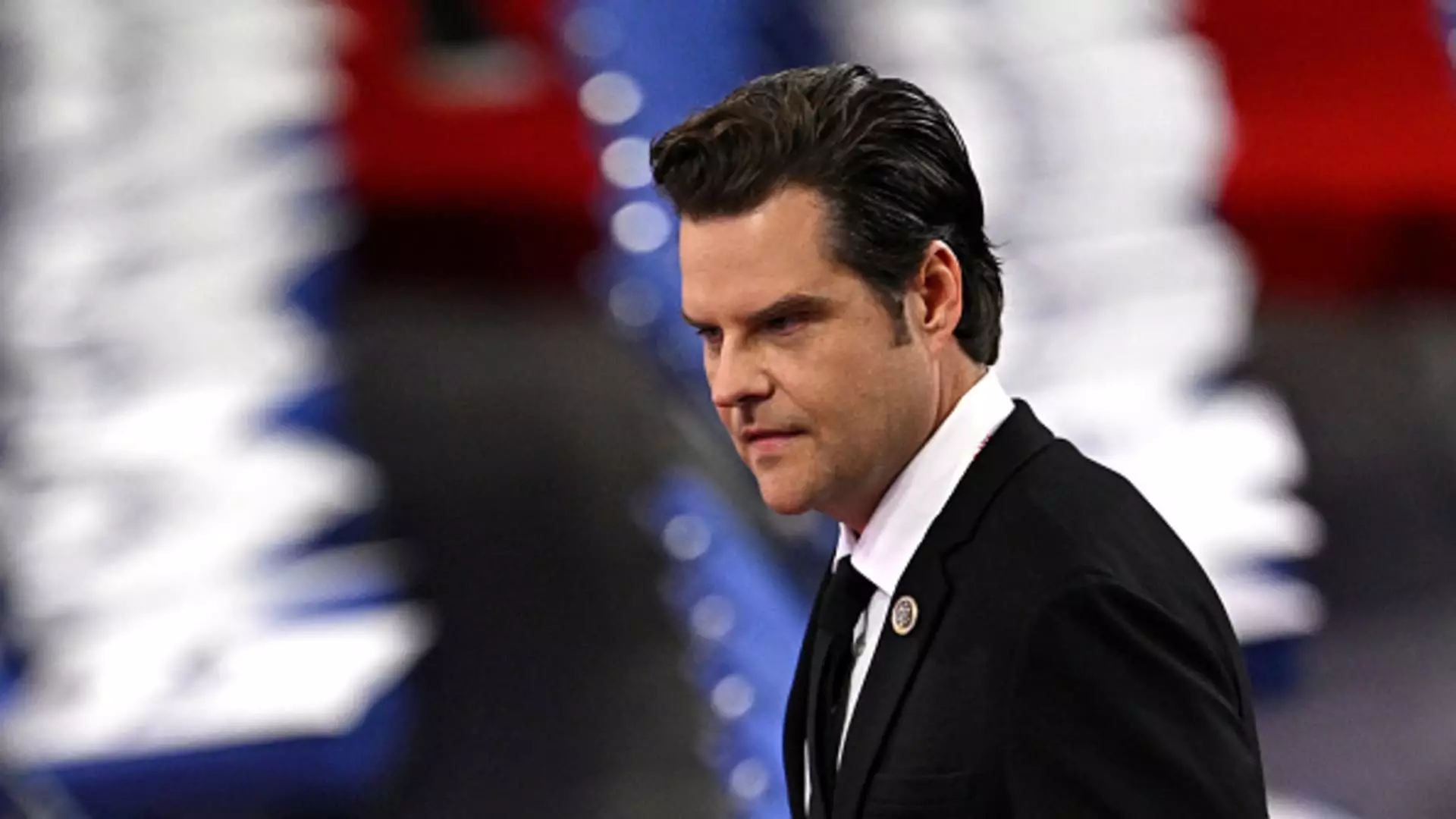In a dramatic turn of events, the nomination of Matt Gaetz for the role of U.S. Attorney General has been marred by serious allegations that could significantly undermine his credibility and position. According to statements from a lawyer representing a woman who has come forward, she testified before the House Ethics Committee, claiming she observed Gaetz engaging in sexual acts with a minor at a house party in Orlando back in 2017. This explosive revelation raises critical questions not only about Gaetz’s conduct but also about the broader implications for the legal framework surrounding such allegations, particularly when they involve individuals in significant positions of power.
Gaetz, a polarizing figure in American politics, has consistently denied all accusations relating to sexual misconduct, including the allegations brought forth by the woman. Following the announcement of his nomination by President Donald Trump, Gaetz resigned from Congress, a decision that many see as a move to divert attention away from the ongoing controversies surrounding his name. His lawyer, Joel Leppard, articulated the necessity of transparency, stressing that the American public deserves to know about the integrity of an individual who is poised to become the nation’s chief law enforcement officer. This situation illustrates the paradox of public trust in government officials, especially those occupying pivotal roles.
The Investigation Landscape
The FBI previously investigated Gaetz concerning allegations of sex trafficking involving a 17-year-old, although he was not charged with any wrongdoing. This lack of formal charges has not absolved him in the court of public opinion, particularly given that the investigation’s existence reveals serious concerns about his behavior. While the federal inquiry concluded without action against Gaetz, the ethical implications linger, complicating his path to confirmation. The House Ethics Committee initiated its investigation into Gaetz in April 2021, which was momentarily deferred at the request of the Department of Justice, only to be renewed this year after the DOJ withdrew its request.
The burden of navigating these complex layers of investigations falls heavily on the House Ethics Committee, where bipartisan vehemence continues to shape the discourse surrounding Gaetz. With Gaetz’s recent resignation, questions arise concerning the future direction of the committee’s inquiries. Some congressional Republicans are demanding insights into the committee’s findings before agreeing to a Senate confirmation vote. This circumstance underscores the tenuous nature of political alliances, especially concerning ethics-related discussions within the party ranks.
Political Ramifications
As the gears of political machinery churn, the Republican leadership is navigating treacherous waters. House Speaker Mike Johnson has signaled intentions to request that the Ethics Committee withhold its findings from public disclosure, justifying that Gaetz’s departure from Congress makes the report’s release a breach of protocol. This statement reflects broader tensions in the party about maintaining image and unity amid allegations that could tarnish reputations.
The Senate’s path forward regarding Gaetz’s potential confirmation remains uncertain, as discussions surface about possible recess appointments that could bypass conventional protocols. Trump’s appeal to the Senate majority for expeditious decision-making on his nominations places additional pressure on party members, straddling the line between personal loyalty to an ally and their responsibility to uphold public integrity.
In this volatile backdrop, the significance of accountability in elected officials becomes paramount. Gaetz’s case brings profound implications for the ethical standards expected from those in power, demanding that they not only adhere to legal frameworks but also honor public trust. The testimonies and investigations will likely resonate within and beyond political circles, sparking conversations about the ethical responsibilities of lawmakers and the mechanisms in place to hold them accountable. As the situation unfolds, all eyes remain on the ethics committee, the Republican leadership, and the broader implications of this scandal on the American political landscape. The intersection of personal conduct and public trust remains a contentious arena in which the future legislative climate is being shaped.

Leave a Reply